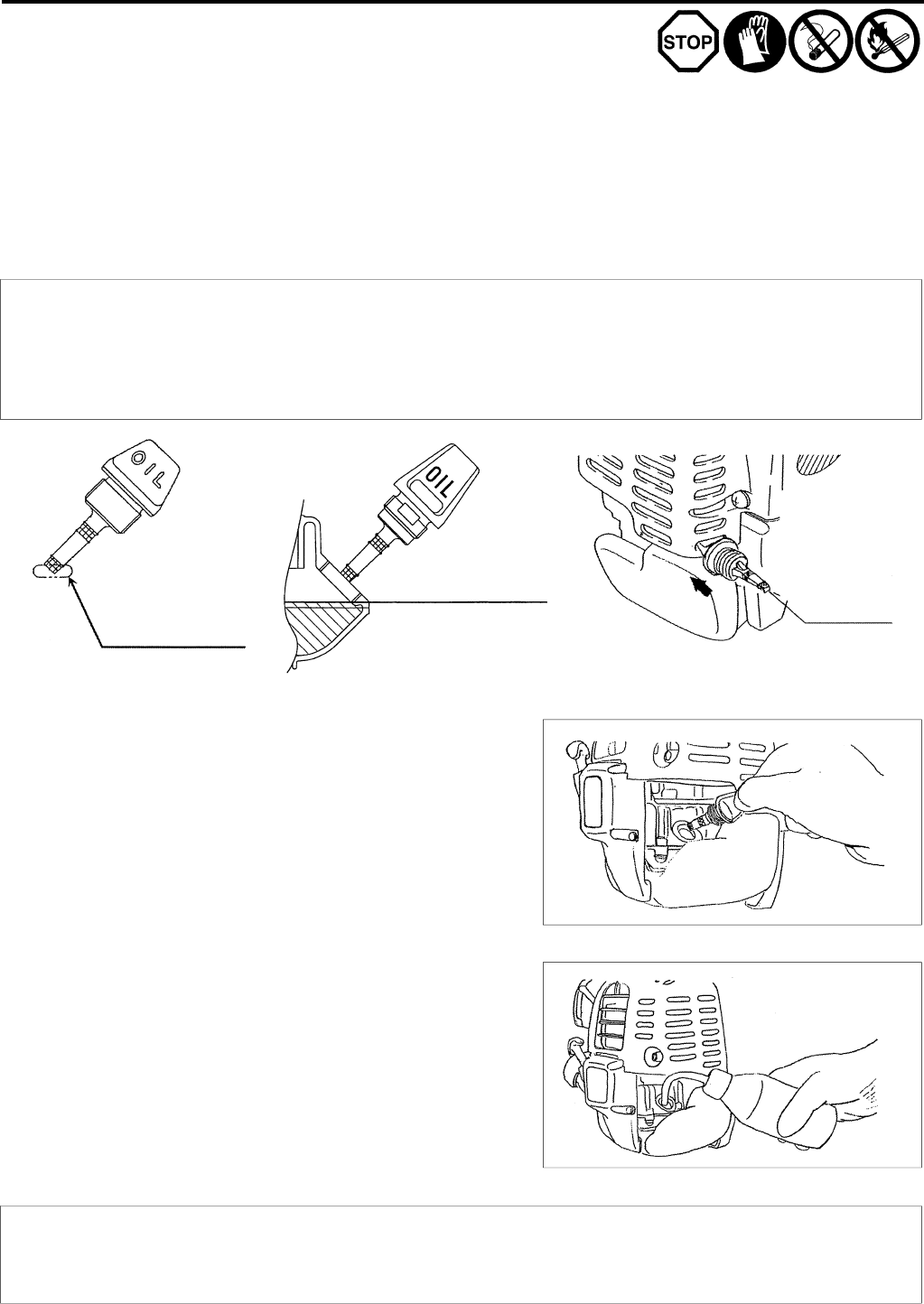
12
Inspection and Refill of Engine Oil
–Perform the following procedure, with the engine cooled down.
–While keeping the engine level, remove the oil gauge, and confirm that the oil is filled within the upper and lower limit marks.
When the oil is in short in such a way that the oil gauge touches the oil only by its tip, in particular with the oil gauge remaining inserted in the
crankcase without screwing-in (Fig. 1), refill new oil near the port (Fig. 2).
–For reference, the oil refill time is about 15 h (refill frequency: 15 times).
–If the oil changes in color or mixes with dirt, replace it with new one. (For the interval and method of replacement, refer to P. 17)
Recommended oil: SAE 10W-30 oil of API Classification, Class SF or higher (4-stroke engine for automobile)
Oil volume: Approx. 0.1 L
Note: If the engine is not kept upright, oil may go into around the engine, and may be refilled excessively.
If the oil is filled above the limit, the oil may be contaminated or may catch fire with white.
Point 1 in Replacement of Oil "Oil Gauge"
– Remove dust or dirt near the oil refill port, and detach the oil gauge.
– Keep the detached oil gauge free of sand or dust. Otherwise, any sand or dust adhering to the oil gauge may cause irregular oil
circulation or wear on the engine parts, which will result in troubles.
– As an example to keep the oil gauge clean, it is recommended to insert the oil gauge on its knob side into the engine cover, as shown in
Fig.3.
(1) Keep the engine level, and detach the oil gauge.
(2) Fill oil up to the edge of the oil refill port. (Refer to Fig.2 of the preceding
page).
Feed oil with the lubricant refill container.
(3) Securely tighten the oil gauge. Insufficient tightening may cause oil leakage.
Point 2 in Replacement of Oil: “If oil spills out”
– If oil spills out between the fuel tank and engine main unit, the oil is sucked into through the cooling air intake port, which will contaminate
the engine. Be sure to wipe out spilt oil before start of operation.
BEFORE START OF OPERATION
Fig.2
Upper limit of oil level
(Lower part of oil refill port
threaded part)
If oil adheres around
this tip refill new oil.
Fig.1
Oil gauge
Fig.3


















